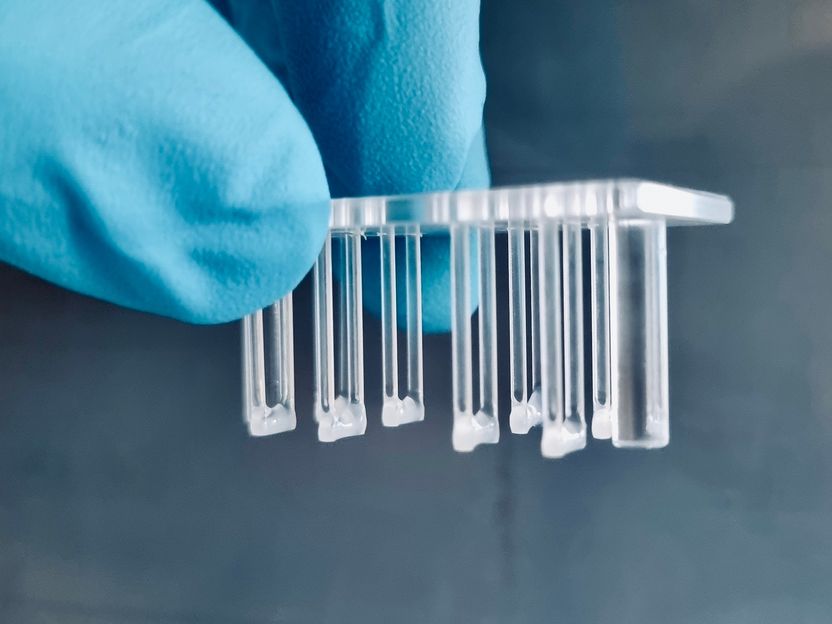Innovative 3D drug screening system
Research project to develop a 3D screening system to cultivate tissue and automatically stimulate and quantify its mechanical properties
Advertisement
Professor Timo Betz, University of Göttingen, has been awarded a Proof of Concept (PoC) grant by the European Research Council (ERC) for his “TissMec” project to develop a 3D screening system to cultivate tissue and automatically stimulate and quantify its mechanical properties. PoC ERC grants provide top-up funding of €150,000 over 18 months to outstanding researchers, who have already received ERC funding, so that they can build on the innovation potential of their findings.

Closeup of the chamber system with muscle tissue attached to the elastic post system.
Arne Hofemeier
Betz and his team have developed a 3D cell culture chamber to grow muscle and other tissue using a system where they can use high-resolution microscopy and measure forces close-up in the cell. This new funding will enable them to extend the usability of the chamber to other tissues. One application of this system is drug screening. Getting a new drug to market can cost billions and is a hugely time-consuming and expensive process, which includes animal testing before human trials – the most costly and difficult parts. However, many promising compounds fail when tested on human subjects. In fact, they may prove to be ineffective or even harmful. This system should reduce the work and cost associated with this process, as well as the number of animal experiments that are required to test and validate future drugs.
In addition, the team’s enhanced laboratory version of the chamber system will allow scientists to mimic the mechanical situations that confront various living tissues in serious conditions, such as cardiovascular disease or muscular dystrophies. Betz explains: “Our new research project sets out to develop a system to enable automated functional screening of the effects of a compound on human tissue. It also means that scientists will be able to model different health conditions in the lab to get a better understanding of disease processes and treatments. This could be a game changer for the pharmaceutical industry as well as academic and medical research.”
Betz completed a PhD in 2007 in the Soft Matter Physics Division in Leipzig before taking up a postdoctoral position at the Institute Curie in Paris where he became a permanent researcher. After obtaining a professorship in Münster in 2016, he moved to the University of Göttingen in 2020. His research focuses on deciphering the fundamental physical processes within living cells leading to better health interventions as well as discovering new physical processes within the cell. His research includes developing a 3D tumour model to understand the mechanisms of rapid cell division in cancer cells, creating “optical tweezers” to understand the mechanical properties of a living cell, and a project to build a Lego microscope to inspire the next generation of scientists.




















































